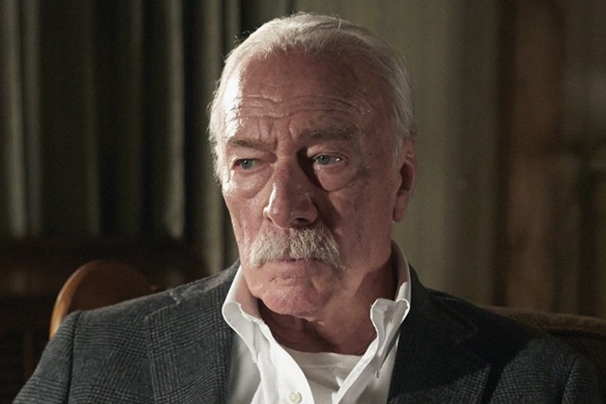
When dealing with topics as sensitive as the Holocaust, it seems necessary to write about them with the utmost care. Its gravity necessitates exploration of serious themes and if not done in an appropriate manner, it can be disastrous. In Benjamin August’s freshman screenplay “Remember,” he utilizes the Holocaust as a plot ploy to create a semi-psychological thriller. Directed by Atom Egoyan (“The Sweet Hereafter”), the movie’s rather vapid use of the Holocaust unsuccessfully tries to take on big themes. “Remember,” which features a superb performance from Christopher Plummer (“A Beautiful Mind”), is nonetheless an entertaining film if one is able to completely suspend disbelief during its various ludicrous scenes.
Zev (Christopher Plummer) is a recent widow and sufferer of dementia living in an assisted living home outside of New York City. On the seventh day of sitting shiva for his wife, Zev is given a letter by his friend Max (Martin Landau “Ed Wood”) who also lives in the home. In the letter, Max writes says Zev and Max are the last two people on earth who are able to identify the man who killed their families at Auschwitz. Because Max is physically disabled, Zev promises to go kill the man who killed their families. Max also writes that when this man immigrated to the United States he took the name of a survivor, Rudy Kulander, but his real name is Otto Wallisch.
We did find out that Max has apparently done his research. There are four Rudy Kulanders who emigrated from Germany at this time. Now, Zev must travel across the country to hunt down the right Rudy Kulander to avenge their families.
So a sick 88-year-old takes off on a cross-country roadtrip to get his revenge on a Nazi, but first he has to purchase a Glock so he can do his murdering. Ah yes, of course. It only makes sense that an elderly man with dementia is able to go to a gun store and purchase a firearm. This is not to mention the fact that Zev asks the vendor to write down the instructions of how to use the gun because “he forgets things sometimes.” Maybe, it’s a poignant comment on how unrestricted the purchase of a gun is in the United States, but it definitely feels more like bad writing.
Zev encounters his first Rudy, who happens to have at hand proof that he was a Nazi but served in Africa, and didn’t kill Zev’s family. This encounter serves to move the plot forward, but doesn’t develop the character or explore the large themes it attempts to take on, including but not limited to: memory, history, revenge and family.
Plummer’s character has to consistently reread the letter after every time he sleeps as his dementia causes him to forget where he is, what has happened and his mission. Although essential for the plot to make any sense, the rereading of the letter becomes repetitive and annoying. Plummer’s performance, partly through these repetitive actions, does make the character and the disease from which he suffers feel real and believable.
Eventually, Zev reaches the last Rudy Kulander. At this point, there is a large twist which the astute viewer may have seen coming. This turn, although it may have been inevitable, is interesting and thought provoking. And ironically it is what is most disappointing about the film. Here, August sets up situation which offers the possibility for explorative and philosophical discussion through dialogue. Rather than take this challenge head on, he avoids it, taking the easy way out with his characters.
The movie is entertaining, but when a film takes on so much, we expect so much more than what “Remember” gives us.

